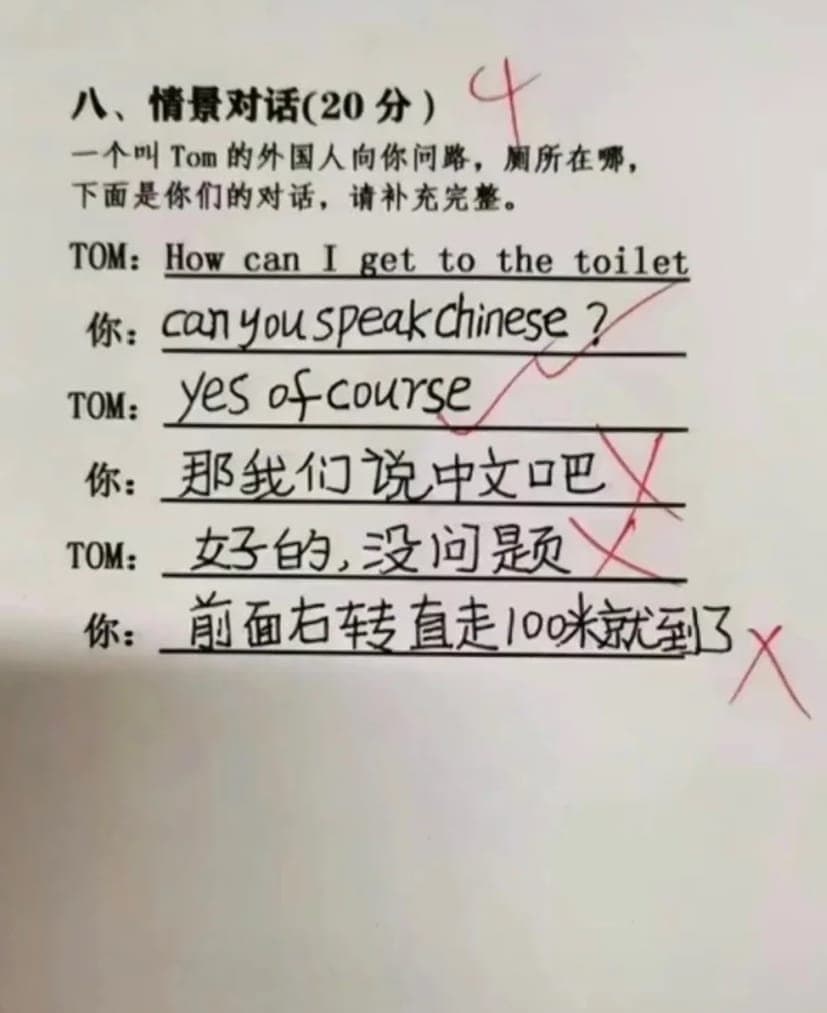this post was submitted on 07 Nov 2023
502 points (100.0% liked)
196
16450 readers
1932 users here now
Be sure to follow the rule before you head out.
Rule: You must post before you leave.
founded 1 year ago
MODERATORS
you are viewing a single comment's thread
view the rest of the comments
view the rest of the comments

Whoa that’s traditional Chinese isn’t it? I’ve never seen that before outside of my books, which I promptly ignore until I get a hang on simplified 😂
Yup. I like it more because I think it's prettier and more logical. I was taught simplified growing up, though.
I suppose I could just Google it or ask her, but I’ve noticed that my teaching uses 是的 to mean yes, but you noted it as “it is”, and my girlfriend uses “对的” when she’s talking to other 中国人. What is the best to use just as “yes”?
Chinese doesn't really have a real "yes". 對的 (对的) just means correct. The most straightforward yes answer to a yes/no question would probably be [verb you want to confirm]+的. So "yes" in response to "會不會" would be 會的.
Ooooh!!!! That makes sense!!! Thank you so much!
不用謝!
Sorry, by the way, if I seemed rude in my initial comment. I didn't mean to, but in hindsight it could have appeared so.
Haha no worries, it fit right in with my cheeky comment.